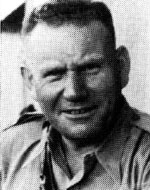Schiff, Shlomo
Son of Tzippora and Avraham-Yitzhak. He was born in 1896 in the city of Kishinev in Bessarabia. He began attending a private school in his city and continued with a municipal school. As a member of a Zionist family he immigrated to Eretz Israel with his family in 1910. In Israel he continued to study for two years at the Ezra School and when World War I broke out he was deported along with the rest of Russia’s citizens to Egypt. Shlomo was one of the first conscripts to join the Mule Corps, fought in Gallipoli, and returned with the battalion to Egypt. He studied for a while in the English school in Alexandria, served for a time in the Egyptian labor battalion, and served for about a year in the British Royal Engineers Corps, with whom he returned to Palestine. Shlomo was hired as an inspector in the Ministry of Public Works of the Mandatory government and supervised the construction of roads in the Upper Galilee and Rosh Pina. There he met his future wife. Shlomo joined the Palestine Police at the beginning of February 1924 in accordance with the instructions of the National Institutions and received the rank of sergeant. As a devoted member of the Haganah, he worked to the best of his abilities, and more than once managed wisely to prevent actions by British officers and officers intended to harm the Haganah. His progress in the police was rapid. A year later he was promoted to lieutenant colonel. After two years he was promoted to the rank of inspector, and in 1932 he was appointed assistant district police inspector in Jaffa. During the 1929 riots, Shlomo, together with British officer Riggs, headed the Tel Aviv defenders who were attacked by the Arabs in 1934. In 1934, he was promoted to captain and transferred to the Tel Aviv Police, in 1937 he was sent by the police to a special course in England. In the 1940s Shlomo was appointed commander of the Tel Aviv police and was promoted to the rank of major. He was appointed commander of the Haganah. He was the first Jew to receive this rank and was awarded the rank of member of the Order of the British Empire in 1941. During this period, the activities of the Etzel and Lehi organizations intensified against British targets and the Lehi directed its main activities to eliminate British intelligence officers Morton and Wilkins, who headed the “Jewish Department” of the CID. For this purpose, an electric mine was installed remotely in an apartment on Yael Street in Tel Aviv, and in the attempt to enter into the apartment, several explosions were heard. A telephone call to the police headquarters led, as expected, to several officers to look into the incident, but unfortunately it was not Morton and Wilkins but the Jewish officers Schiff and Guedemann and with them a British officer named Turton. In an explosion that took place on the 3 Shvat, the 21st of January, 1942, the three officers were killed and two policemen were lightly wounded. Shlomo was brought to eternal rest with a full police ceremony in the Tel Aviv cemetery. His life was written up in the following books: “The Beginnings of the Yishuv and its Builders,” in “The Haganah in Tel Aviv,” in “The Fighters of Herut Israel,” in “The Book of the Etzel” In the book “The Hebrew Policeman during the Mandate Period.” Uri Kisari, editor of the newspaper “Nine in the Evening,” wrote an article in his memory, and an article was published in his memory. The newspaper “Haaretz” published a poem by Natan Alterman “Policeman” in his memory.
